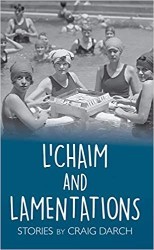In Laboratory for World Destruction, Robert S. Wistrich concerns himself with “marginal Jews,” or those great thinkers whom he believes were “cut off from their own tradition.” He grounds his discussions in Nietzsche’s hope that contemporary Jews could once again become the “founders and creators of values.” Wistrich argues that during the period between Bismarck’s German Empire and Hitler’s rise to power, the contributions made by German and Austrian Jews significantly imprinted the cultures of Central Europe. Beyond that period, however, he claims, the demise of this cultural history occurred, in part, due to the “social psychology of envy.”
Among the intelligentsia of Central Europe, Wistrich speaks of Stephan Zweig, whose novel, The World of Yesterday, indicates Zweig’s wistfulness and mourning for the common, humanistic culture lost with the rise of Hitler and the destruction that ensued. In a discussion of Sigmund Freud, Wistrich notes that Freud and his contemporaries were bound by the 18th century Enlightenment in Reason period and found it unnatural to depart intellectually from that philosophy. Nathan Birnbaum, the founder of Austrian Zionism and a spiritualist, Wistrich explains, believed that “only in an independent Jewish homeland would Jews finally be able to develop their distinctive social and ethical genius for the greater welfare and redemption of mankind.”
Each chapter in this compendium examines personal history and analyzes literary renderings of prominent Jewish writers, whose fate was determined by the onslaught of anti-Semitism and the “belief that Jews consciously masterminded all the subversive forces of radicalism and revolt.” It is a collection that will further the reader’s understanding of the perils of social envy and racism. Index.





